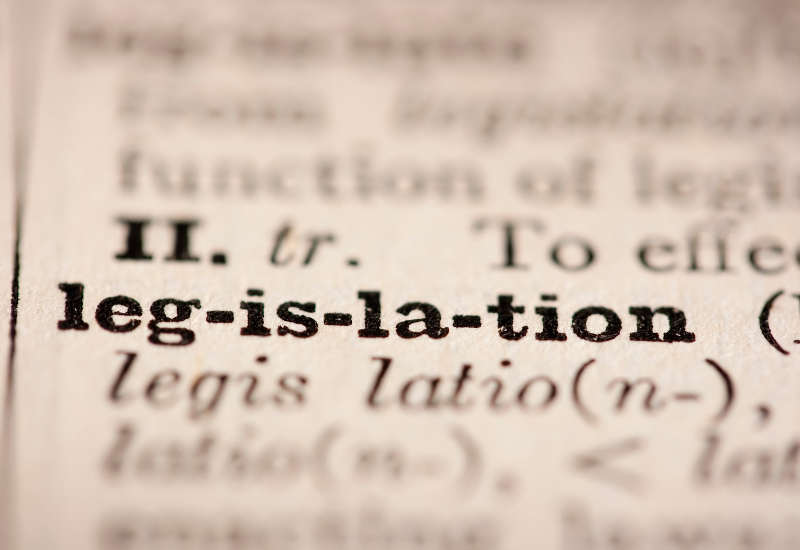- 15 Nov 2023
- •
- 4 min read
Employment Rights: Where do your volunteers stand?

Volunteers are hugely important for charities, and many charities rely heavily on them, with almost 6.5million volunteers in the sector, but how do they differ from employees or workers? Our employment team looks at the relationship with volunteers and some of the common questions that charities should be asking when considering their volunteers to avoid unintentionally creating or breaching employment rights.
How are volunteers different from employees or workers?
Unlike ‘employees’ or ‘workers’, the term ‘volunteer’ has no legal definition. In general, volunteers are unpaid, they are not obliged to work and there is no contract in place. They can be paid out of pocket expenses without blurring the employment status line. As a result, they do not get the benefit of employment rights such as holiday, sick pay and notice.
In general, what rights do volunteers have?
Bluntly, none. Volunteers have no employment rights and protections although the organisations they work for must take reasonable steps to look after their health and safety.
What do I need to be aware of when hiring volunteers?
By failing to monitor the relationship carefully, the parties can unintentionally create employment rights. A key indicator that would change the relationship would be the creation of an obligation between the organisation and the volunteer, in other words, the individual agrees to work in return for a payment of some sort.
‘Payment’ in these terms is not just money – any consideration will count. So, for example, agreeing to work in return for free training, over generous expenses or opportunities to apply for a permanent role could all distort the relationship.
Bringing someone into the employment or worker category open you to risks. Key risks include failure to pay employment tax to HMRC, failure to comply with minimum wage (to name a few).
However, volunteers can be great for an organisation and, done properly, the relationship can be set out clearly and made legally low risk.
Can volunteers be reimbursed for their expenses?
Volunteers may be reimbursed out of pocket expenses which have been (or are likely to be) genuinely incurred without losing their volunteer status. However, if volunteers are given a flat rate or are reimbursed in excess of the actual expenses paid, this could be considered renumeration and create issues. Whilst HMRC have said that one-off rewards or unexpected gifts may be okay, regular over-generous payments are unwise.
Should we provide training for volunteers?
It is good practice to provide training to volunteers. However, if this training is acquired in the course of the voluntary work but not given for the sole purpose of the volunteer’s role, this could be deemed a ‘benefit in kind’ giving rise to consideration and an employment relationship.
Should we get volunteers to enter a volunteer agreement?
It is common to enter a ‘volunteer agreement’ setting out what is expected. Whilst the existence of an agreement between the volunteer and organisation does not automatically mean there is a contract (even if it is signed and set out like one), the courts will look at the substance of any agreement – in particular checking if there are mutual obligations between the parties, renumeration, the control the organisation has over the volunteer and the economic reality of the situation.
If you choose to use volunteer agreements, great care should be taken to ensure every task is expressed as voluntary – for example ‘usual hours’ rather than ‘scheduled hours’.
Can I get require volunteers to meet certain standards and targets?
Volunteers can be required to hit a certain standard without this creating an issue for employment status. Indeed, it is important that organisations ensure that their volunteers are meeting targets and abiding by expected codes of conduct. It is good practice to review volunteers’ work and provide them with a point of contact who can help monitor their progress. However, to avoid suggesting any employment relationship it would be better to refer to such individuals as ‘mentors’ rather than ‘supervisors’.
Am I breaching the National Minimum Wage rules by not paying volunteers?
The National Minimum Wage Act 1998 only applies to ‘workers’ and ‘employees’. A genuine volunteer without a contract is not a ‘worker’ and therefore is not entitled to minimum wage. However, even if a contract existed (suggesting worker status), the Act provides a specific exemption for workers employed by a charity, voluntary organisation, or fundraising body.
HMRC has given guidance regarding minimum wage that a genuine volunteer will:
- provide their time and effort completely freely;
- be able to come and go as they please;
- be under no obligation to provide their services; and
- not suffer any sanctions if they do not perform their volunteer duties.
Our volunteer has raised a discrimination claim – are they protected by the Equality Act 2010?
This is the subject of some debate, however it is generally accepted that volunteers are not protected by the Equality Act. The Equality Act provides employees and those who have a ‘contract personally to do work’. Whilst there has been some debate as to whether volunteers who work under a volunteer agreement would fall under this it is unlikely that a genuine volunteer would be protected.
My volunteer has been accused of discrimination, are we liable for this?
Probably. The Equality Act states that ‘anything done by an agent for a principal, with the authority of the principal, must be treated as also done by the principal’. In other words, if the volunteer (the agent) does something in the course of carrying out tasks for the organisation (the principal), the organisation is vicariously liable. It is no defense to say that the organisation did not know or approve of the volunteer’s actions. The volunteer themselves may also be personally liable in some circumstances.
What checks and assessments should we do for volunteers?
Just like employees, volunteers can be subjected to criminal record checks. In fact, these checks are free of charge for volunteers.
Unlike employers who have a statutory duty to carry out risk assessments,organisations comprised solely of volunteers are not required to do so. Nevertheless, it is advisable to do so.
Our volunteer has hurt themselves at work – are we liable?
Potentially. Employers owe a duty of care not only to their employees, but also to volunteers and anyone who is affected by their activities. Volunteers should be made aware of health and safety policies and procedures and, if necessary, receive training.
I have questions about engaging volunteers in my organisation – what should I do?
We are here to provide help and legal advice. Employment status turns on very specific facts and is unique to each circumstance. Please do get in touch with a member of our team if you have any queries or require any assistance.
For assistance on employment related queries please contact Kathryn Evans or for charity governance related queries please contact Kirsteen Hook.





